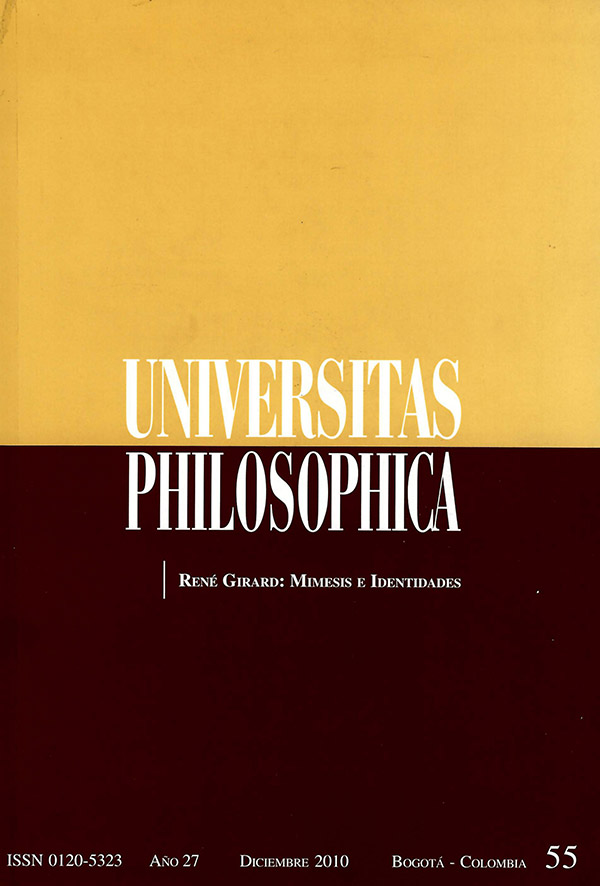Abstract
The whole René Girard’s thought is based on the single hypothesis of the mimetic desire. Human beings imitate themselves in behavior and in desires themselves as well. Following the classical interpretation of Girard and imitation, we could say that the mimetic desire theory might then be an obstacle to the construction of our own identity, as we lose it as long as we imitate models. Through Spinoza's thought and the concept of mimetic rationality, we argue that Girard's concept of mimesis is, on the contrary, absolutely compatible with a conception of identity placed as a half-way house between ipseity and alterity. Therefore, we should analyze a constant movement between differentiation and identification in order to demonstrate Girard's concept of identity builds an identity understood as distance or diffèrance.
This journal is registered under a Creative Commons Attribution 4.0 International Public License. Thus, this work may be reproduced, distributed, and publicly shared in digital format, as long as the names of the authors and Pontificia Universidad Javeriana are acknowledged. Others are allowed to quote, adapt, transform, auto-archive, republish, and create based on this material, for any purpose (even commercial ones), provided the authorship is duly acknowledged, a link to the original work is provided, and it is specified if changes have been made. Pontificia Universidad Javeriana does not hold the rights of published works and the authors are solely responsible for the contents of their works; they keep the moral, intellectual, privacy, and publicity rights.
Approving the intervention of the work (review, copy-editing, translation, layout) and the following outreach, are granted through an use license and not through an assignment of rights. This means the journal and Pontificia Universidad Javeriana cannot be held responsible for any ethical malpractice by the authors. As a consequence of the protection granted by the use license, the journal is not required to publish recantations or modify information already published, unless the errata stems from the editorial management process. Publishing contents in this journal does not generate royalties for contributors.


